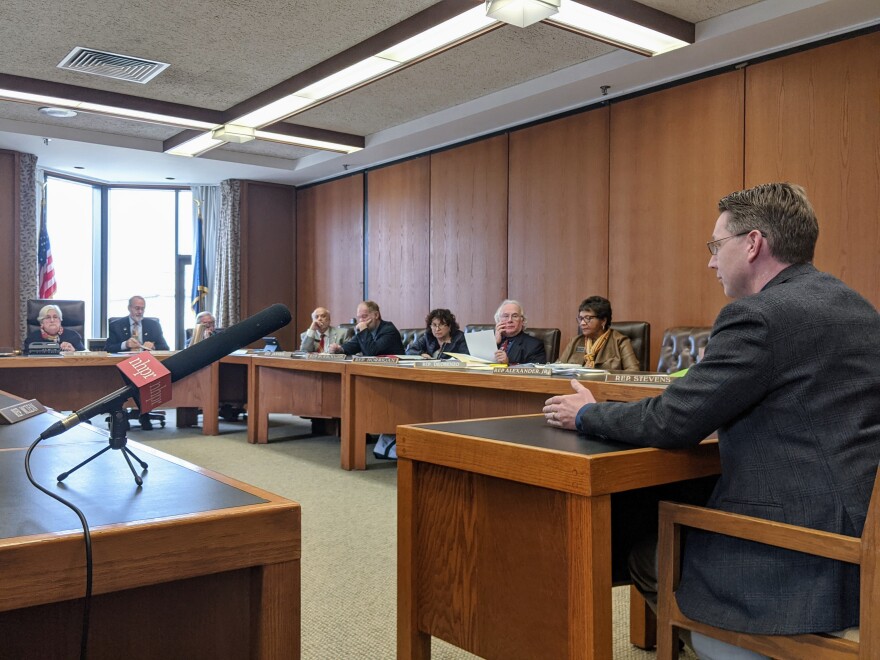Journalists voiced strong opposition Wednesday to a bill that seeks to make New Hampshire media outlets update online crime stories with not-guilty verdicts.
The bill’s sponsor is Brookline Republican Rep. Jack Flanagan. He says he filed it, at constituents’ request, out of concern that news media were not required by law to issue updates, retractions or corrections when someone is acquitted of a crime.
His bill would make news media liable for any damages incurred by the subjects of stories that were not immediately updated upon request.
"I think we sort of understand, in this room, that people's lives are being affected because of the internet,” Flanagan told the House Judiciary Committee. “And what this bill is basically saying is, I want the complete story."
Representatives from news organizations say they already provide the full story – and that any such "right to reply" legislation would violate the press freedom clause of the Constitution.
Kimberly Haas, a Union Leader correspondent who spoke on behalf of the New Hampshire Press Association, says outlets like hers follow internal policies for issuing corrections and updating stories.
"Basically what can't happen is, you can't compel the press to write something through the legislature, just like you can't restrict them from writing something,” Haas said.
No one testified in favor of the bill at its committee hearing Wednesday. Some said they believe the proposal is well-intentioned, but not clearly worded enough to legally fulfill its purpose.
For example, the bill says news outlets must issue updates immediately upon receiving a written request to do so. Flanagan says this request would come from a court, but the bill doesn’t specify. According to critics, this means anyone could write in to trigger the process with no verification mechanism.
In his testimony, Flanagan acknowledged another weakness: the rule couldn't apply to New Hampshire news stories that get picked up and re-published by outside media, such as outlets in Boston.
As an alternative, he suggested the state Press Association could publish clearer, universal guidelines on the issue.








